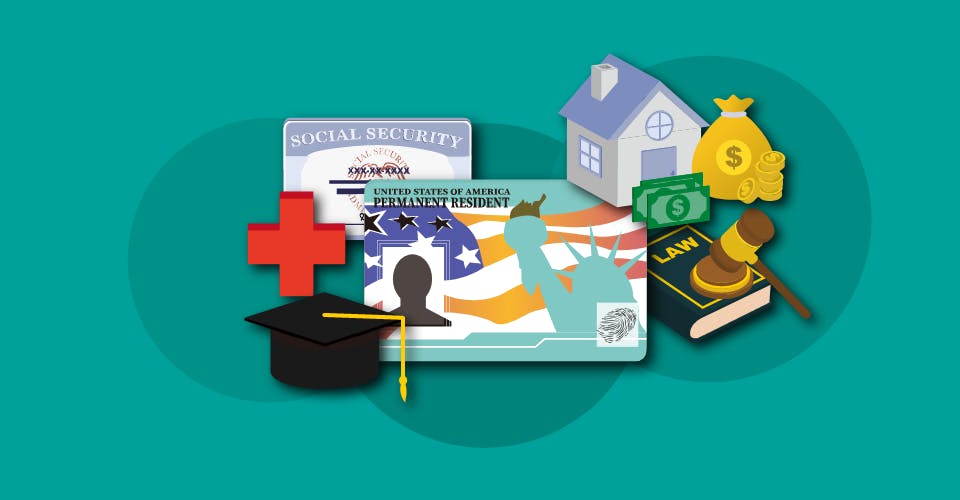Legal permanent residence is different than citizenship in the United States. By definition, a legal permanent resident is someone who is still a non-citizen, although they do enjoy certain rights and privileges that simply those who are visiting the U.S. on a tourist visa are unable to enjoy. A citizen is defined as a person who by birth or naturalization enjoys certain rights and has certain duties in a nation-state. For example, legal permanent residents, hereby referred to as LPRs, are eligible for employment in the United States and also rent apartments from most housing companies.
Citizens enjoy more rights, such as the right to vote and the right to hold public office, and also are U.S. Passport holders. LPRs need to travel in and out of the country with their green card and are limited in the type of international travel they can do because of the law and stipulation by the USCIS called “abandonment” of one's a green card.
In general, here is a comprehensive list of the freedoms, rights, and responsibilities that someone with LPR status has in the United States:
Responsibilities:
- One is expected to support the democratic form of government in the United States
- Required to obey and comply with national and state-level laws and jurisdictions
- Required to file your income tax returns, annually, to the IRS
Rights:
- The right to be protected by all of the laws of the United States
- The ability to travel freely throughout the U.S.
- The right to own property in the U.S.
- The right to attend public school
- The right to apply for, and obtain, a drivers license and permit
- The right to obtain certain public benefits, if eligible, such as Supplemental Security Income, Medicare, and Social Security
- The right to health insurance via different state health care exchanges
Enjoying the rights listed above also entails being a responsible green card holder as the law applies to all legal permanent residents. As such, here are some of the ways that previous green card holders have had their legal status taken away by the USCIS:
- Falsifying information to get immigration benefits or public benefits
- Claiming to be a U.S. citizen when not; voting in a federal election
- Habitual drug or alcohol usage
- A failure to support family members in the U.S. (in the form of not paying child support fees)
- Failure to file tax returns to the IRS, or to lie about incomes made or received in the immediately preceding fiscal year














